- About Us
- Columns
- Letters
- Cartoons
- The Udder Limits
- Archives
- Ezy Reading Archive
- 2024 Cud Archives
- 2023 Cud Archives
- 2022 Cud Archives
- 2021 Cud Archives
- 2020 Cud Archives
- 2015-2019
- 2010-2014
- 2004-2009
 |
Cud Flashes In The Pan |
April showers bring May flowers, as they say where I’m from. From Keyes’ “Flowers for Algernon” to Zelazny’s “A Rose for Ecclesiastes” to Swanwick’s Vacuum Flowers, flowers have made many appearances in science fiction. I even used flowers as a mystical message on an alien world in my own “White Ribbons, Red Roses” in the anthology Unparalleled Journeys. So what better way to honor the flowers of May (in these parts, anyway) than with some science fiction?
“Star Flower”
Sci-Fi
By David M. Fitzpatrick
“What is it?”
“We brought it aboard when we found it, captain. It appeared at first to be a globe representing a planet, although there are clearly linguistic symbols inlaid in gold on the outside. But the top of the globe removes, and we found this inside.”
“That’s the most horrible-looking thing I’ve ever seen. Encased in glass?”
“Yes. The… thing… is within, as you can see. Now, there were mathematical formulas inside the globe’s top that have helped us pinpoint the location of its depicted planet. It’s the third planet of a star—”
“Yes, I get it, we know where it is. Back to important things. What does this thing in the glass mean?”
“We’ve had our experts working on it, but I think you can figure it out. The item is green tube, with several flat green flaps attached. Atop it is a series of red flaps, intertwined.”
“I see that. Clearly, this planet’s inhabitants sent this ugly thing as a threat.”
“Without a doubt. Green, the color of war; red, the color of enslavement. It’s pretty obvious.”
“And the form! The tube, resembling the shaft to the underworld where the demons live. The green flaps, resembling the flying wing creatures that once tormented our people. And those red flaps—absolutely representing the many layers of destruction the ancient evil ones laid upon us.”
“Clear as day. As if that weren’t enough, the green shaft has those sharp things jutting out.”
“Hmm. Not sure how that relates to us, though.”
“Well, merely that they’re sharp points, symbolically stabbing us.”
“I suppose you’re right. Now, what about this the shaft disappears into?”
“It’s dirt, sir. Plain old dirt, albeit encased in glass.”
“So they mean to bury us, is that I?”
“Indeed! Now, I don’t know how these life forms knew so much about us as to communicate this threat across the barriers of space and language, but they certainly have. I’d say our duty is clear, sir.”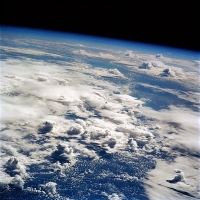
“You’re right. Well, an antimatter bomb teleported into the planet’s core should take care of things before they have a chance to attack us.”
“Aye, captain.”
“One thing… any luck decoding those symbols on the glass, the ones in gold?”
“Sorry, sir—no luck. It isn’t mathematical. Presumably the threat, in their language. I don’t know how they know so much about us, but they don’t know enough to say it on our language. But the style of their letters evokes feelings of dread! Lines and curves, intersecting—as terrible and as ugly as the green and red monstrosity with which they’re threatening us. Still, I’d love to know just what those words mean. Here, have a closer look.”
PEACE, FRIENDSHIP, KNOWLEDGE, LOVE.
“You’re quite right. Even without understanding them, their meaning is clear. Evil indeed. All right, alert command, and set course for the planet.”
“Aye, captain.”
“And once we’ve scanned this thing, have it destroyed. Nothing so ugly will spend one more minute on my ship.”
“Attack of the Roses”
Sci-Fi
By David M. Fitzpatrick
Amelia heard Jake hollering, and she leapt out of bed and fled into the main room of the domed house. Through the window, the blazing lavender sun was high in the denim-blue sky. The familiar three moons hung just above the horizon, and the nearby ancient stone ruins cast long shadows. Everywhere she looked, the thirty-foot-tall trees wandered as they always did, walking lazily and mindlessly about the surface, capped by umbrella tops. But she ignored all these usual sights when when she saw what was happening.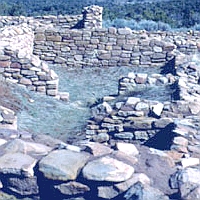
The roses were attacking. There were white, red, yellow, and pink roses outside, but they’d grown twenty feet tall and had mutated monstrously. A dozen of them, with green stems as thick as marble columns, with leaves like massive flaps of leather as they beat against the glass. And their petals were huge and edged with teeth. They were snarling, trying to get in.
“I told you this would happen!” Jake cried.
“You said they’d mutate!” she hollered back. “You didn’t say they’d turn into giant monsters!”
She grabbed a blaster rifle from the supply cabinet. Jake already had one. “Those umbrella walkers,” Jake said, gesturing to the thirty-foot-tall trees with the mushroom caps that meandered about, their root feet searching for water and food to suck up. “They must have cross-breeded with the roses or something. The plant DNA on this planet is remarkably adaptable. There’s been evidence of previous carnivorous plants on Andranthus Seven, but nothing for thousands of years—until now, thanks to you!”
“I just wanted to grow some nice Earth flowers,” she said. “Something that wasn’t giant and walked all over the place. Something beautiful.”
“Well, they’re very beautiful,” he snapped. “How many did you plant?”
“Just a dozen.”
“Typical. A girl gives herself a dozen roses. A dozen roses that could eat us.”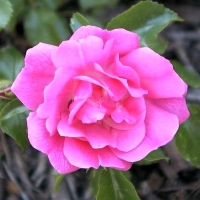
She didn’t need a lecture. She was a scientist, just like him, studying the long-dead civilizations here. But she was a woman, too, and she needed pretty things like flowers in her life. Just not like this.
The roses beat against the glass of the dome. It was unnerving, but she knew they were safe.
“They can’t get in here,” he said, as if reading her mind. “But if we want to ever go outside, I guess we’d better go deal with them.”
They brandished their rifles, headed cautiously out the back. Everything was clear, and soon they were opening up on the giant flytrap until it was dead. They piled the plant remains in one place and set to work vaporizing them. It didn’t take all that long, but by the time they were finished, their rifles were empty. They’d need to get inside and start charging them.
Then came the rumbling sound. They stopped, and Jake looked at Amelia.
“You feel that?” he asked.
“Yes.”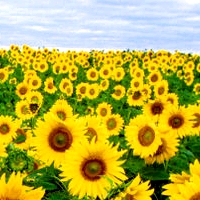
The ground shook.
“We’d better get inside,” she said. “Hurry.”
He grabbed her arm as the ground began trembling steadily, causing dirt and sand to dance on the rocks beneath them. “You said you planted a dozen. We killed a dozen. Anything else I should know about?”
She swallowed. “I might have… planted something else.”
“What else?”
“Sunflowers,” she said. “Probably a hundred of them.”
The shadows of the swarm blotted out the light of the sun as the pair raced for the dome.
“The Impatient Botanist”
Sci-Fi
By David M. Fitzpatrick
Little Suzy, her head full of blond curls tied with a white bow, tossed a handful of colorful flowers into the lake. She was six, and her parents should have been watching her.
“Why do you throw them in the water?” asked the alien, whose name was Zeen. He was eleven hundred in Earth years, with seven arms and three eyes.
“Because they’re pretty,” Suzy proclaimed, “and pretty things belong in the water.”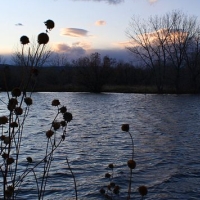
She was pretty, so Zeen picked her up and threw her in the water. He hadn’t seen Boris Karloff in Frankenstein, or he might have realized that it wasn’t a great idea. It didn’t go well, with her sputtering and screaming. Her parents really should have been watching her. Once the confused Zeen helped her out, she screamed at him.
“You’re stupid!” she hollered. The white bow was soaked and sagged on the side of her head, where her yellow hair was plastered. “How can you fly around the universe and be so stupid?”
“I am very sorry,” Zeen said. “I did not understand.” He was new to the planet. His people loved being in the water as much as on land, so it seemed natural to him. Apparently not for these humans.
“I would like to learn more about these flowers,” Zeen said. “They grow in the earth, but you toss them in the water. Will they survive there?”
“Of course, dummy,” Suzy said. “But they’ll die there.”
“Then why throw them in the water? Why not let them remain pretty in the soil?”
“You’re so stupid,” Suzy reminded him and kicked him in the shin of one of his three legs. He howled in pain and grabbed at the leg with three of his hands.
“Please, I need to bring some of these flowers back, and must learn about their proper care,” he said. “Can’t you instruct me?”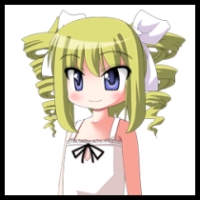
“My mother plants seeds and bulbs,” Suzy said, exasperated, “and she waters them, and she fertilizes them. That’s like cow poop. Things that used to be alive help plants grow.”
“That I understand,” he said.
She was trying to wring out her dress, and she shrieked in frustration. “Stupid alien!” she cried.
“That’s very cruel to keep saying,” Zeen said. “I told you I didn’t understand.”
She picked up a rock and heaved it at his head. It struck him between two of his eyes and drew orange blood. He howled again.
“That’ll teach you,” the little girl said. “This is my land, and I get to decide what happens here. If I say you get punished, then you get punished.”
Zeen glared at her. “I have tried to be understanding and patient,” he said, “and have apologized for my wrongdoings. But I will not tolerate you striking me again.”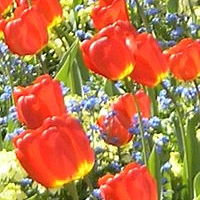
“Oh, yeah?” she said, raised her black-shoes foot high, and stomped down hard on one of his sets of toes.
***
Back on Zeen’s home planet, the sky was a beautiful shade of yellow. Twin red suns blazed in the sky. Zeen was there, his face still bandaged where she’d struck him in two places, but it had been worth it. He stood with his friend, Quinz, admiring the garden Zeen had planted of flowers from Earth: red roses, yellow tulips, white daffodils, orange lilies, and a dozen other species grew in a rainbow of colors.
“They are very nice,” Quinz said. “Gene splicing to make them grow?”
“For some, yes,” Zeen said. “Others are asexual. But otherwise, I planted them just as I’d learned.”
“They required fertilizer?”
“That they did,” Zeen said.
He rested one of his hands on the corner post, where the white bow was neatly tied.
“Desolation”
Sci-Fi
By David M. Fitzpatrick
The world was black and burned. Clouds of ash, soot, and smog in the sky covered the barren wasteland in darkness. Daniel plodded through the dust, his hood pulled about his face, a makeshift filter of layered cloth covering his nose and mouth keeping most of the dust out of his lungs. He wore a backpack held together with duct tape and a fanny pack tied with rope.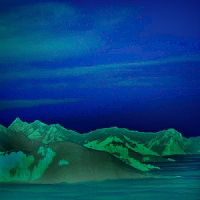
Mindy trudged behind him in her long dress, with a hood and filter, in silence. The only sounds were their shuffling feet, kicking up the thick layer of dust that covered everything in sight. The entire planet, Daniel knew.
“I need a break,” she said, a grown woman with a little girl’s tired voice.
He slowed up as she pulled off her small backpack and dropped it to the dirt. Then she plopped to the dusty ground and lay down, arms out, breathing heavily. Daniel wasn’t tired enough to flop into the dust, so he stood and watched her.
Presently, she said, “Do you think there are others?”
“Somewhere.”
“We haven’t seen any. No people, no animals.”
“The world is big, Mindy.”
“But they said there were thousands of smaller asteroids, even after the Big One hit,” she said through her face mask. “Three weeks of bombardment. We heard on the radio… New York and London and Beijing getting wiped out. Then… everything.”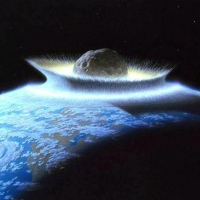
“We can’t be the only ones left.”
She looked up at him, only her eyes visible. They were beautiful blue eyes, but so sad.
“Make love to me,” she said.
“What?” he said, stunned.
“Right now,” she said, and she bent her knees and threw her legs wide, her dress falling to her waist, exposing her underwear. She looked him, arms and legs wide, beckoning him.
“We need to keep moving,” Daniel said. “We need to find food. And shelter. And people.”
“What if there isn’t anyone to find?” Her eyes were wet. “We need to have a baby, Daniel. Maybe now more than ever. So we can make sure there are people.”
He looked across the surreal place that was their home. It was like being on another planet. The asteroids had pummeled Earth for nineteen days, so she was right: Maybe they were all that was left. But survival was key, not making new babies.
Mindy said, “If there’s nobody else, I can’t go on.”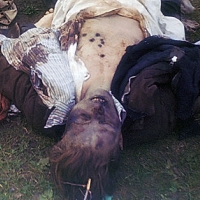
He turned from her, to hide the tears, and waited. Eventually, she closed her legs and struggled to her feet. He trudged onward, and she followed.
***
They walked for days, stopping occasionally to eat. Their pockets and packs were stuffed with food and bottled water they’d scavenged from a destroyed convenience store they’d found. Soon, those supplies would run out, Daniel knew. They had to find more.
They slept nights in the debris of former structures. Daniel couldn’t even tell what they’d been, but only stone and concrete remained. The foundation of a house, the brick skeleton of a bank, a field of jagged concrete that had been a shopping mall, looking now like a mouthful of massive, crooked teeth. And every night, Daniel slept fitfully, waking with the sound of every howl of the wind. He always hoped he’d wake to find some hungry animal stalking them, because that would mean something else had survived.
At night, the sooty clouds almost entirely obscured the faint light of the moon. But even the days were dark, as if an impending thunderstorm forever threatened the entire world. But it never rained.
***
They came upon the shallow valley at dusk. Mindy sucked in her breath when they topped the rise and saw what was below. Down the slope, Daniel could see them—hundreds of them. Tents and blankets, battered cookware and supplies, and garbage from packaged food were everywhere; dead firepits were dug into the ground, adding more ash to the world.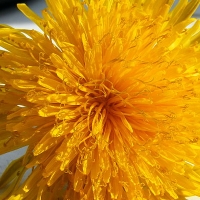
And there were bodies, hundreds of them, dead for weeks. They had survived the asteroid deluge that had wiped out the world only to suffer and die. Men, women, children, and babies, sprawled as if some angry god had cast them out of heaven and into hell. They were dried, almost mummified, without even a hint of maggots to suggest life.
He turned to grab Mindy, tear her away from the horrifying scene. Her eyes were mere slits, dead and lifeless, as she surveyed the scene.
“Let’s get out of here,” he said to her, reaching for her shoulder, but she wrenched away as her eyes suddenly lit up. She dashed forward a few steps, pointing.
“The sun!” she cried.
She was right. Far on the western horizon, there was a break in the clouds—not open to blue sky, but open to a light-gray sky, and the hazy orb of the sun was shining weakly through.
“I want to be there,” Mindy said. “I want to feel it on my face!”
And she broke into a run, bolting down the slope, entering the camp and leaping over the mummified corpses. He followed, hollering her name, but he was big and slow and laden by the packs. She outdistanced him quickly.
She fell at one point, toppling over onto a group of several closely gathered bodies. But she clambered to her feet and kept running, uncaring. Daniel was a hundred feet behind her when she reached the sunbeam—he could tell, because she lit up, however dimly, and she stopped within it to feel its warmth.
He lumbered up beside her, breathing like a bellows, and looked at her. She wasn’t looking at the sun. She was looking at the ground, her eyes bulging. He followed her gaze.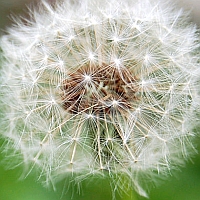
The ground was dirt, ash, and debris, illuminated by the sun’s feeble rays. Atop a small rise in the earth, as if proclaiming its victory a bit higher than the surrounding world, a lone flower grew. It was a simple dandelion, its bright-green stem and shining yellow florets alive and vibrant.
Mindy began to cry.
***
She transplanted the dandelion into a coffee can back at the graveyard, and insisted on taking it with them. A week later, when the flower’s dried stamens and petals dropped off and the sphere of white seeds puffed out, she plucked the flower and blew on it until all the seeds had separated, carried on the light breeze that took them to other places, to root and grow and send their seeds out to populate the world.
Daniel recalled battling dandelions on his lawn, and grinned at his happiness at it now. He recalled an old saying about how, if dandelions were hard to grow, they’d be welcome on any lawn.
He looked forward to having a lawn again. He knew he’d never mow down another dandelion.
David M. Fitzpatrick is a fiction writer in Maine, USA. His many short-stories have appeared in print magazines and anthologies around the world. He writes for a newspaper, writes fiction, edits anthologies and teaches creative writing. Visit him at www.fitz42.net/writer to learn more.
